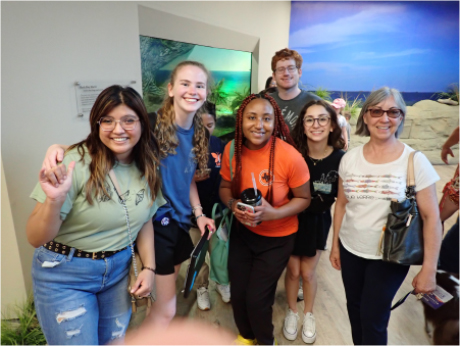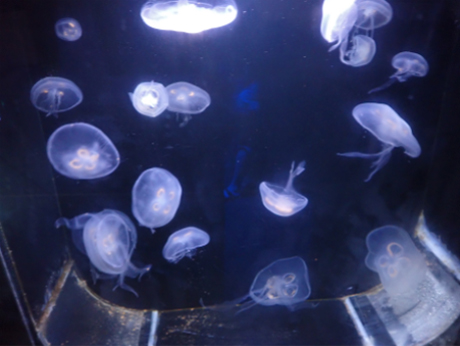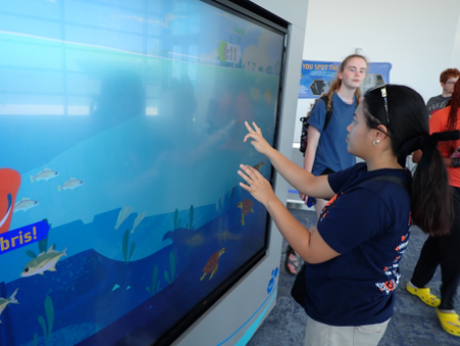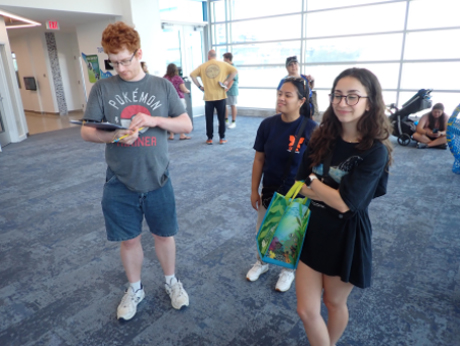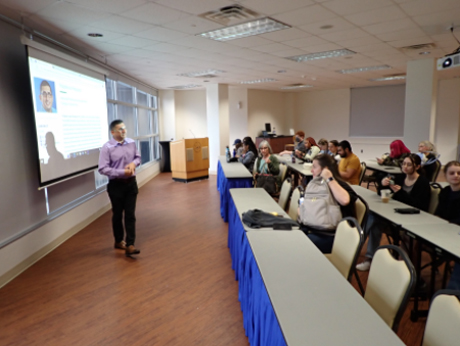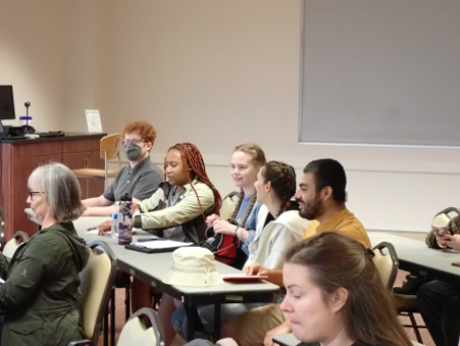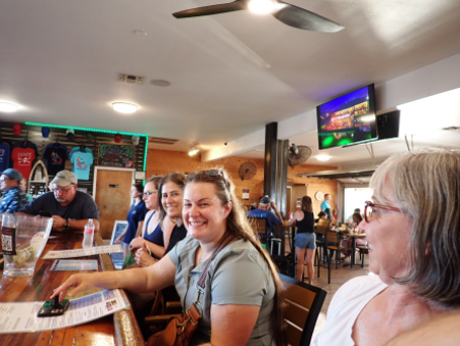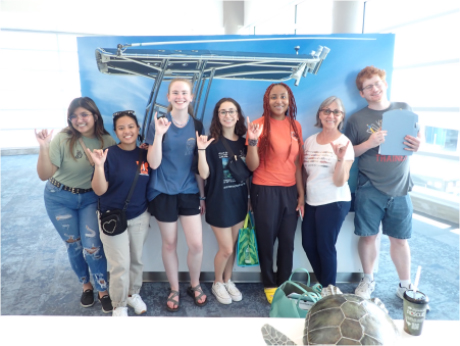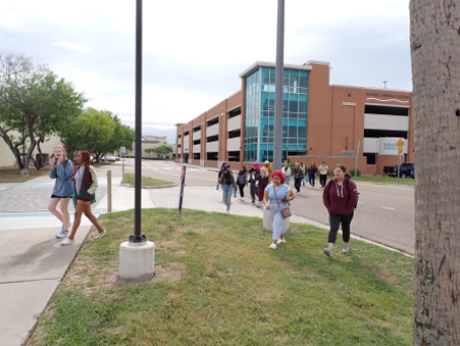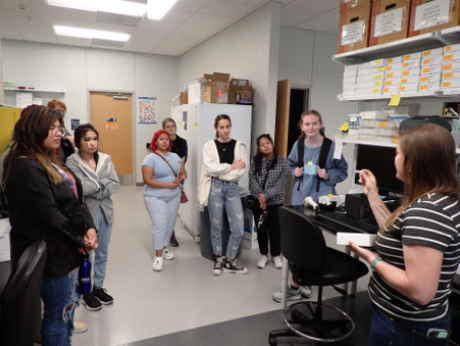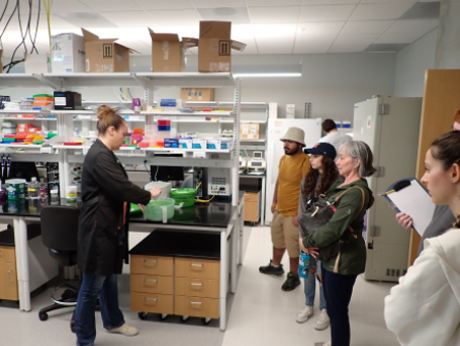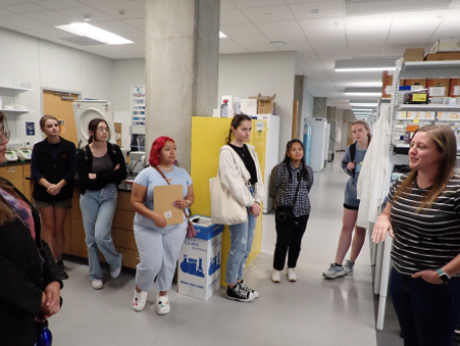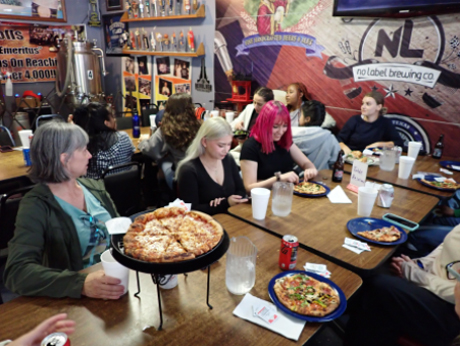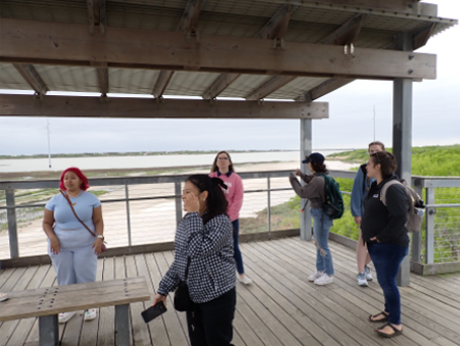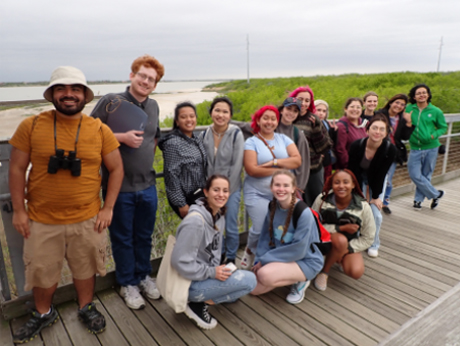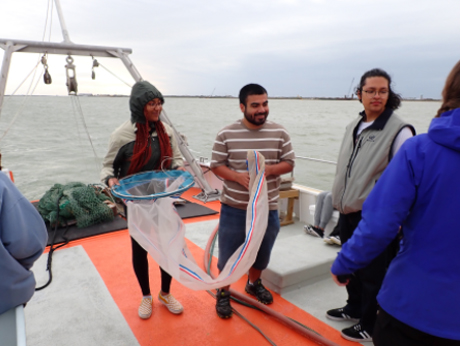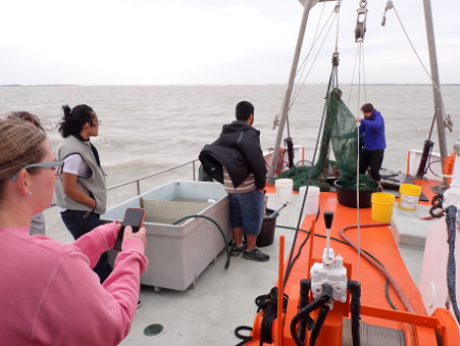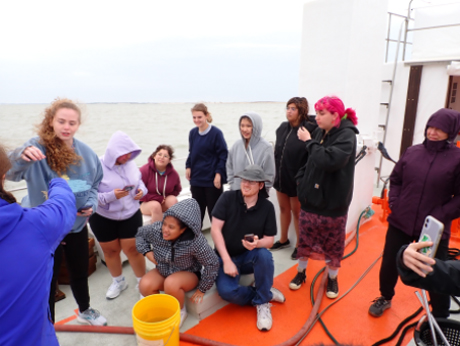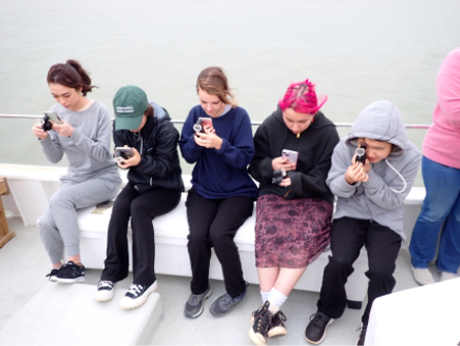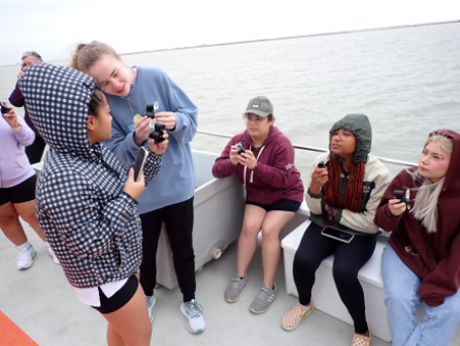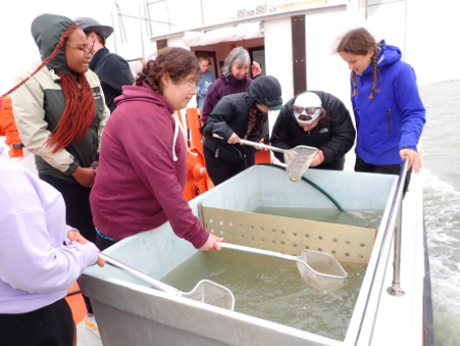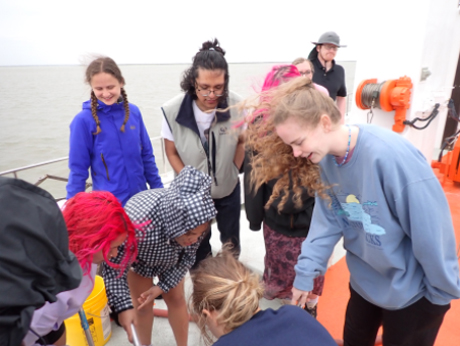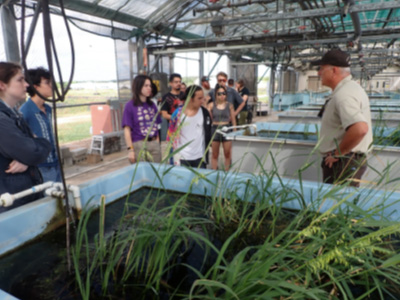
Chris Hathcock explaining the biology of Texas wild rice, an endemic aquatic plant that only occurs in the San Marcos River
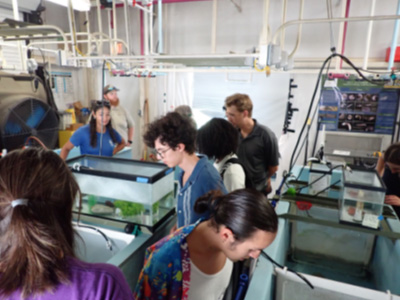
refugia populations of the Barton Springs salamander
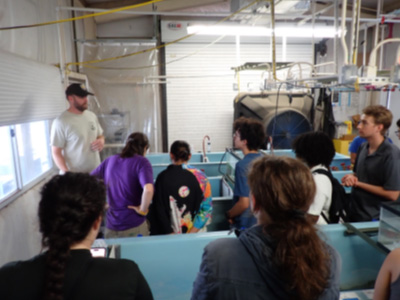
Justin Crow, USFWS biologist, discussing salamander biology in Central Texas
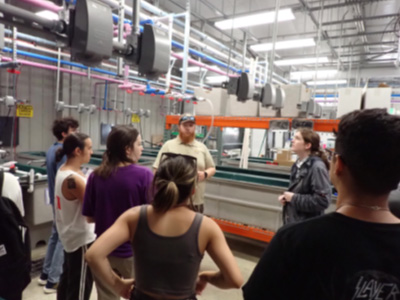
USFWS biologist discussing the biology of the Texas blind salamander
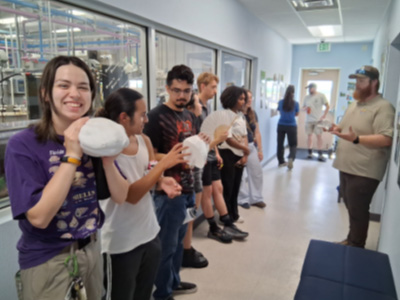
viewing 3D replicates of salamanders and karst aquatic invertebrates
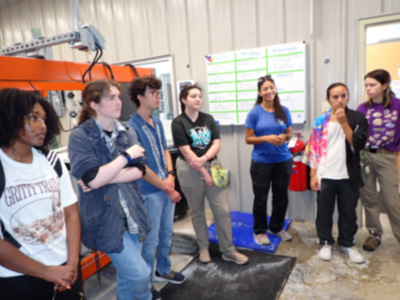
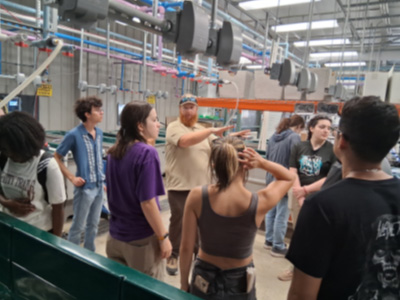
discussion on the value of maintaining refugia populations of spring and karst species in Central Texas
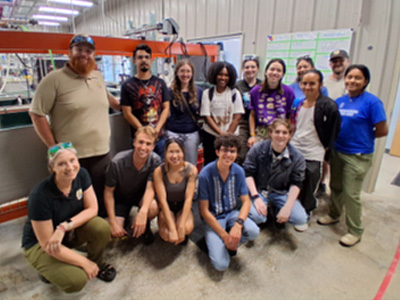
group photo with USFWS biologist and America Corps interns
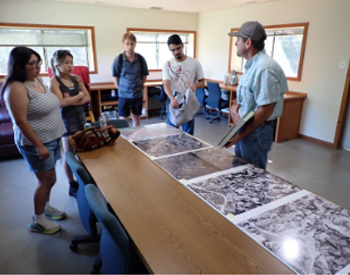
ranch manager Scott Gardner (R) explaining the history of C.L. Browning Ranch based on aerial photos
students L-R: Alisia Romero, Tia Kline, Nick Granderson, Diego Cruz
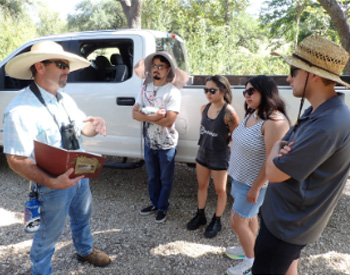
Scott Gardner discussing the value of riparian plants along the spring run
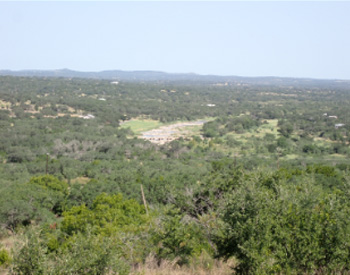
highest point at C.L. Browning Ranch with a view of bend in the Pedernales River (center of photo)
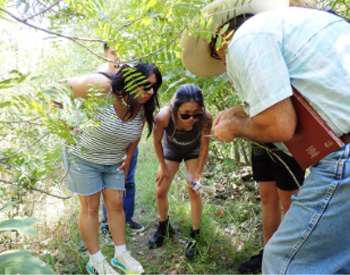
Scott Gardner explaining the difference between pecan and hickory trees
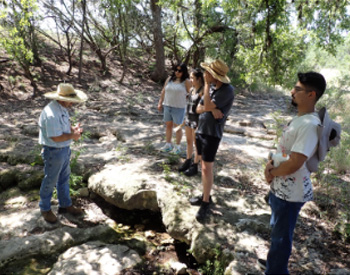
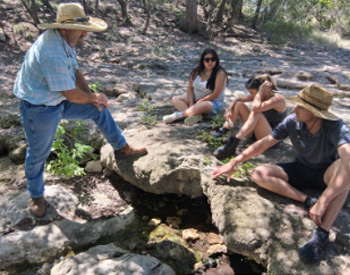
Scott Gardner explaining the history of Honeycut Springs at C.L. Browning Ranch
The San Antonio Water System (SAWS) operates the Clouse Wastewater Treatment Plants (officially known as Steven M. Clouse Water Recycling Center) and the H2Oaks Recycling Plant.
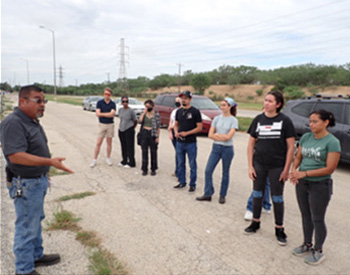
Juan Ramirez explaining the value of wastewater treatment for clean rivers and lakes
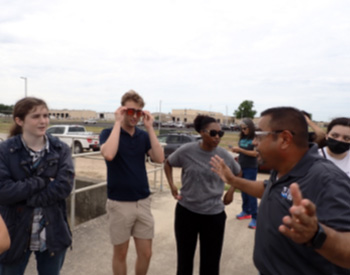
at the inflow of raw wastewater
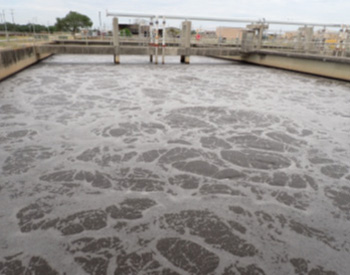
biological treatment of wastewater
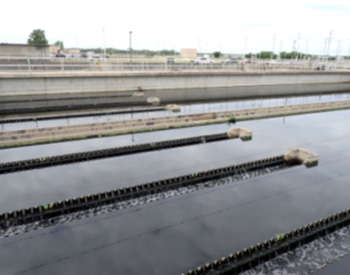
clarification and further removal of fine particles
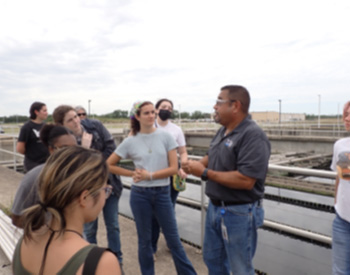
discussing the final process in the wastewater treatment process
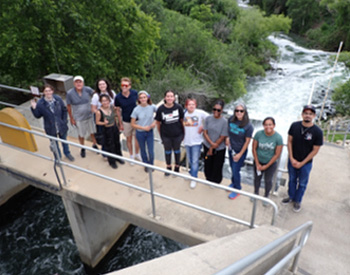
group photo as treated wastewater is released into the Medina River meeting EPA standards
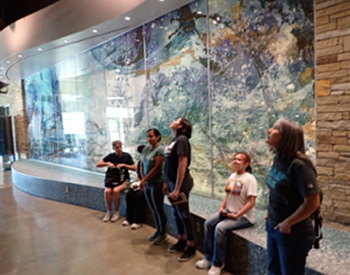
beginning of the H2Oaks Water Recycling Plant where deep aquifer saline water is pumped to the plant and processed through the desalination process
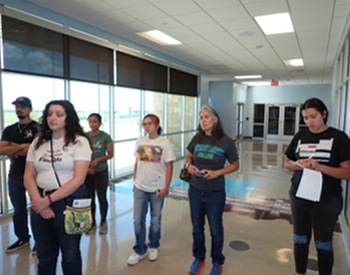
point where saline water enters the plant
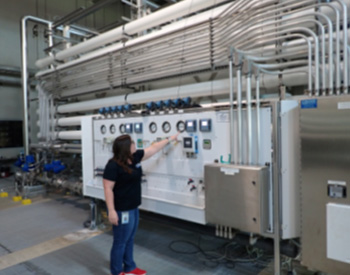
our tour guide, Jennifer Adkins, explains the reverse osmosis process
U.S. Fish and Wildlife Service biologist gave the students a tour of the facility which houses refugia populations of all the threatened and endangered species found in the Comal and San Marcos spring systems of the Edwards Aquifer.

arriving at the facility

viewing the Texas Blind Salamanders

Texas Blind Salamander

viewing the San Marcos Salamander

Texas wild rice refugia tanks

Group photo with U.S. Fish and Wildlife Service biologist
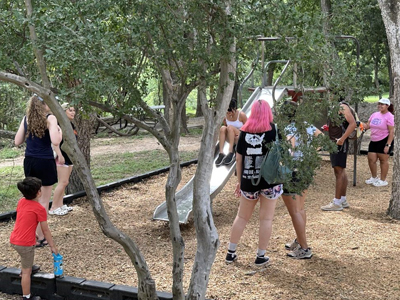
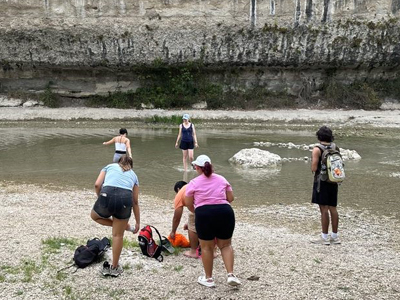
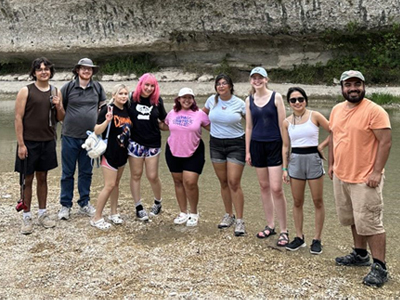
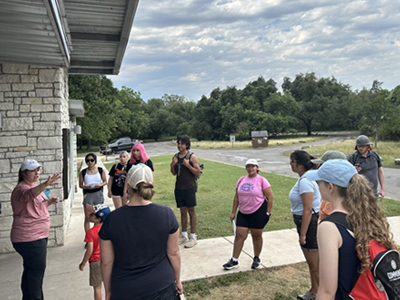
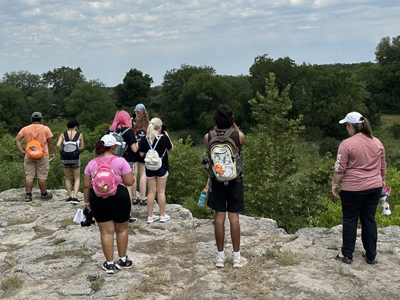
Students were given a guided tour of the preserve by a biologist. Restoration efforts of the disturbed sites were discussed.
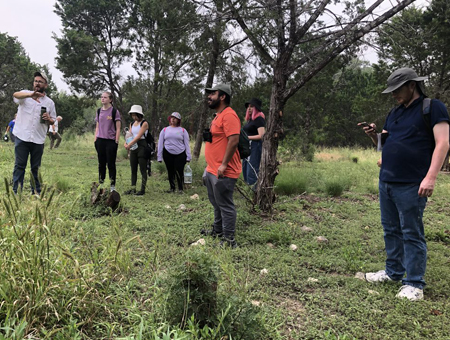
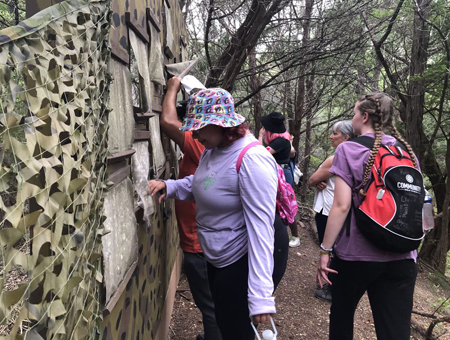
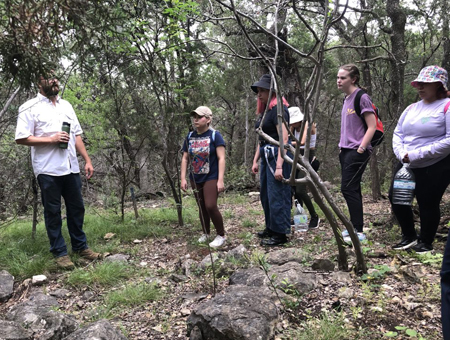
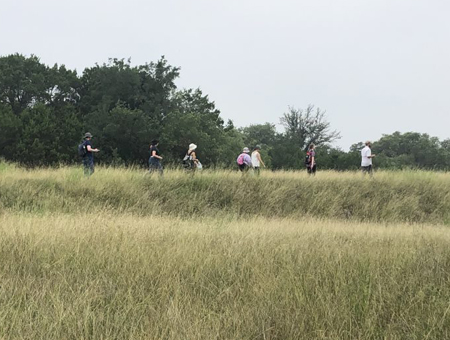
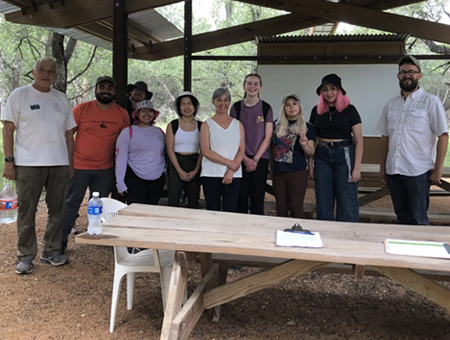
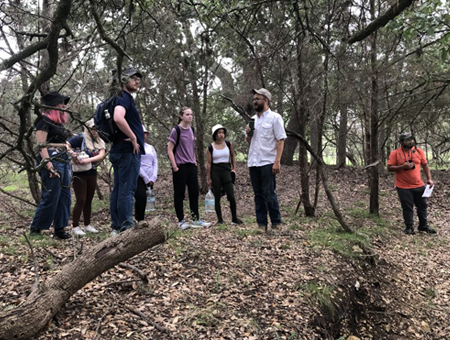
Evaluation of plant coverage in a restored riparian area with the park manager Scott Gardner.
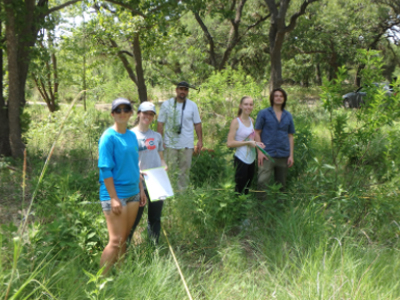
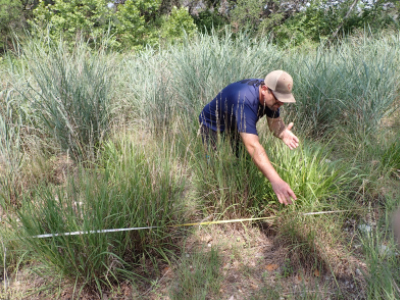
Claire Littlefield and Hailey Avalos collecting biofilm samples.
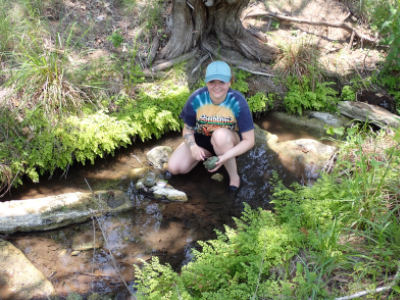
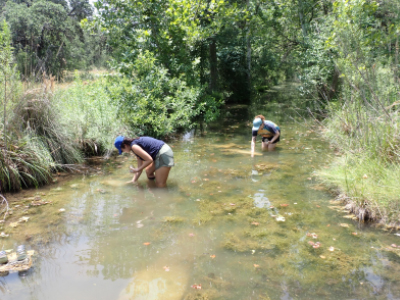
Students learned about the geography and geology of the Texas Hill Country through a ranger guided tour.
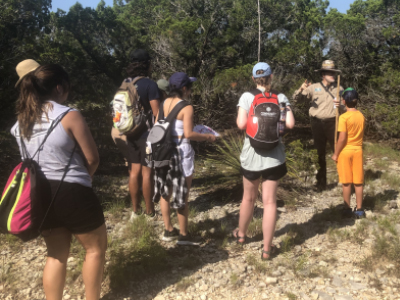
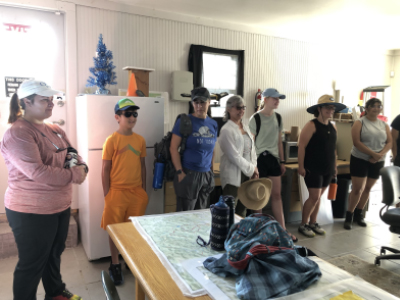
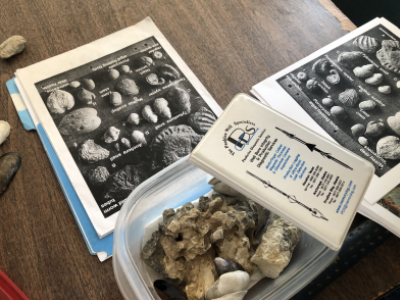
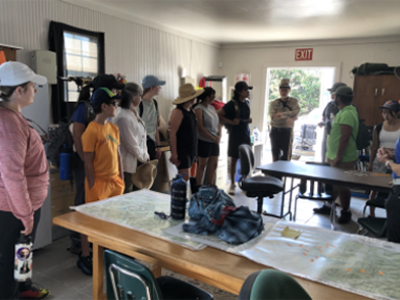
Students hiked over the land bridge connecting two sections of the park bisected by Wurzbach Parkway. The land bridge is the largest one in the United States.
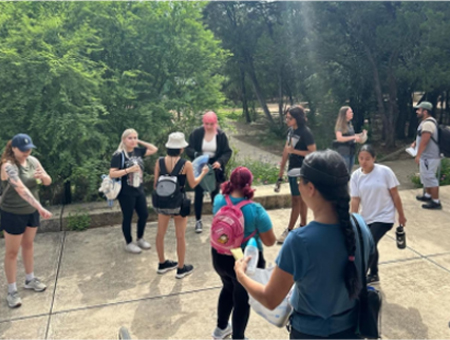
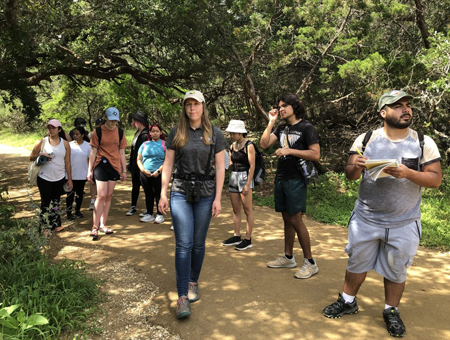
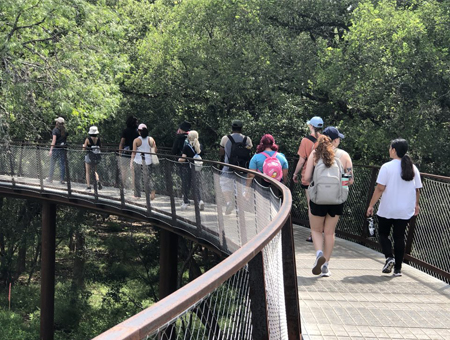
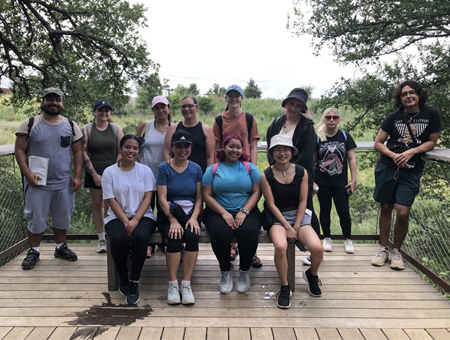
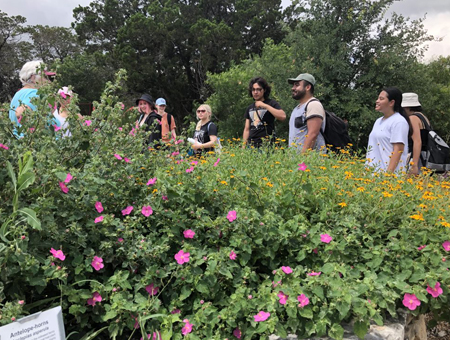
Following their hike through the park, students spent an hour doing yoga.
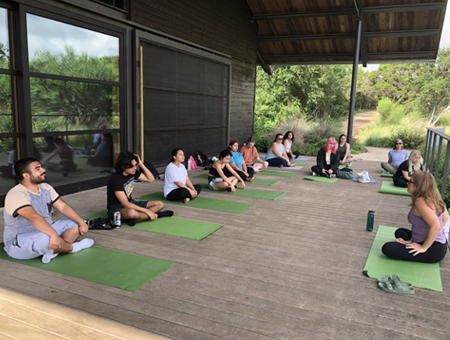
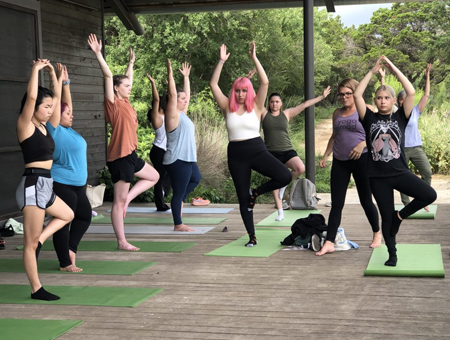
Faculty and students visited the Texas State Aquarium, Oso Bay Wetlands Preserve and Learning Center, and took a trip on the RV Katy marine research vessel out of UT Marine Science Institute.
